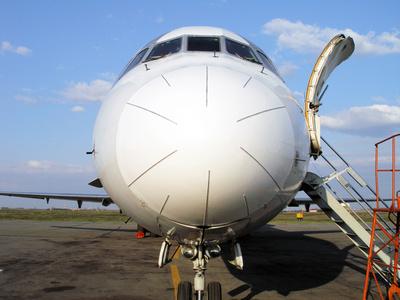Flying during the first trimester of pregnancy is perfectly safe, unless you are experiencing pregnancy complications. To be on the safe side, however, many expectant moms prefer to wait until the second trimester when early pregnancy symptoms start to subside. Most airlines do not restrict traveling for pregnancy women until the 8th month of pregnancy. If you need to take a trip, the first or second trimester is the time to do it. If you do plan on flying during the first trimester, plan ahead so that you are prepared to deal with any of the special requirements of your pregnancy while traveling.
Talk with Your Doctor
Schedule a visit with your doctor before leaving on your trip to get her permission before flying during the first trimester, according to the What to Expect website. If you are traveling somewhere far away, you may want to consider getting a copy of your medical records to take with you should anything go wrong while you are traveling. Talk with your doctor about any warning signs you should watch for while you travel and any special precautions you need to take during your flight.
Locate a Motion Sickness Bag First
If you have experienced any morning sickness during the first trimester, it is likely that you may end up needing that handy little motion sickness bag. If possible, ask for an aisle seat and make sure your seat is stocked with a motion sickness bag before the plane takes off. If you can’t find one, check with a flight attendant.
Bring Your Own Snacks
Depending on how long your flight is, you may not be offered a meal. Since morning sickness symptoms are often aggravated by having an empty stomach, you may want to bring a stash of snacks that you know you’ll be able to eat even if you aren’t feeling well. Granola bars and crackers travel well and can tide over even a queasy stomach. It’s tempting to skip a meal while getting ready to leave for the airport. Be sure and eat a protein-packed meal before your flight takes off to try and stave off hunger and nausea.
Get Up and Stretch
One major concern of airline travel during pregnancy is that pregnant women are at an increased risk of deep vein thrombosis (DVT), according to the American Congress of Obstetrics and Gynecologists (ACOG). Sitting for an extended period of time can make a blood clot more likely, so it is important that you stand up and walk around the cabin for a few minutes each hour to decrease your risk. An aisle seat or an exit row seat makes it much easier to get up and walk around without disturbing other passengers.
Get Some Rest
Exhaustion is a common problem during early pregnancy. Even if you normally have trouble sleeping on an airplane, you may be able to take advantage of the down time and sneak in a nap during the flight. Bring a neck pillow or bulky coat to use as a pillow to make yourself more comfortable.
Photo Credit
- airplane image by Grigoriev Vitalii from Fotolia.com





